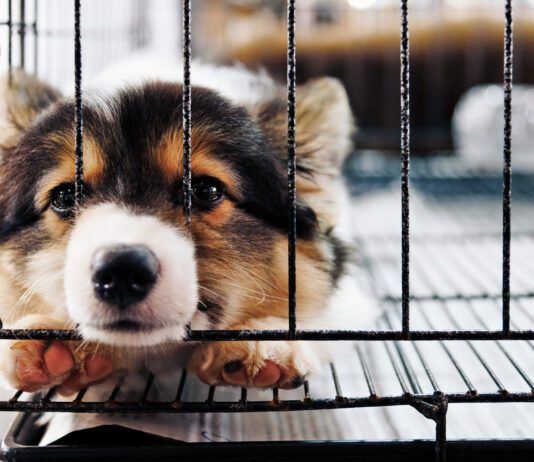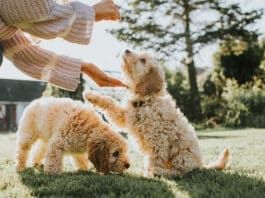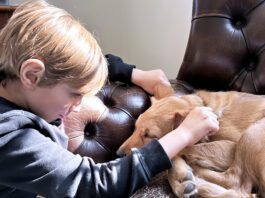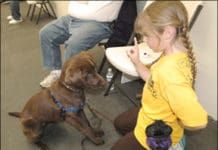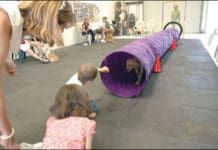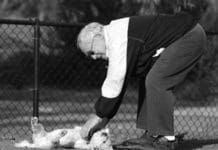How to Train Your Puppy Not to Bite
Contained in every puppy’s mouth is a set of amazingly sharp little daggers known as “teeth.” Puppies explore the world with those mouths. Since you are part of your pup’s world, it is inevitable that those sharp little teeth will at some point come in contact with your tender skin during a behavior known as “puppy biting.” It hurts. So what should you do when your puppy bites you, or other family members (including children)?
Getting the Most Out of Puppy Kindergarten
You've got a new puppy and are about to start puppy classes (or are planning ahead for your new pup even better!). You know good puppy classes are an integral part of helping you and your dog invest in a long and harmonious future. Puppy classes aren't magic. Just signing up, paying, and attending aren't enough. You have to train and practice and build your relationship with your puppy. It will last a lifetime and the effort you put in now will pay off multifold. But keep in mind that the bad habits that you and your puppy develop now will also give you payback many times over! So let's assume you have really committed yourself to rearing a puppy well, and talk about how to get the most out of your puppy classes
Problems With Adopting Two Puppies Simultaneously
There's no denying it: a new puppy is one of the world's most wonderful things. It's a cold, hard heart that doesn't get all mushy over puppy breath, soft pink puppy pads, and the fun of helping a baby dog discover his new world. So, if one puppy is wonderful, two puppies must be twice as wonderful, right? Well, not usually. Most training professionals strongly recommend against adopting two pups at the same time. The biggest challenge of adopting puppy pairs is their tendency to bond very closely with each other, often to the exclusion of a meaningful relationship with their humans. They can become inseparable. Also, owners often underestimate the time commitment required to properly care for and train two puppies; as a result the pups often end up untrained and undersocialized.
Conditioning Confidence in Your Dog or Puppy
There was once a time when you rarely encountered the word socialization" in dog circles. Today it's the new training buzzword; if you haven't heard it at least three dozen times by the time your dog is a dozen weeks old
Get Your Puppy Enrolled Into Puppy Training School As Early as Possible
The optimum time to start a puppy’s education is as early as possible: about eight weeks of age. With food treats and clickers as the primary tools in our training arsenal, we can help owners start educating their youngsters at an optimum training age, before pups have had several months of reinforcement for unwelcome and inappropriate behaviors. Paradoxically, some veterinarians still counsel owners to wait until their new puppies are six months old and “fully vaccinated” to take them to training class. Unfortunately, this advice is just as outdated as the use of choke chains in puppy classes! It’s true that you shouldn’t wantonly expose your pup to high-risk dog populations; you should never take him to a dog park, or let him play with stray dogs on the street. But the risk of contracting an infectious disease in a controlled setting, with other healthy puppies, is quite low.
Puppies Who Demonstrate “Alpha” Behavior
Teddy’s owners were distraught as they explained to me on the phone why they had called. Their veterinarian had told them that their nine-week-old Golden Retriever puppy was “dominant aggressive” because he was biting their hands. He had advised them to alpha-roll the pup every time he tried to bite or otherwise challenge their authority.
How to Socialize Your New Puppy
Dogs who are confident, comfortable, and safe in public are made, not born. Here’s how to socialize your new puppy – or provide remedial socialization for the dog who missed his best chance to learn these critical lessons. By the time a pup is weaned at 7-8 weeks, he should already have a positive worldview programmed into his little puppy brain.
Teaching Your Puppy Critical Social Skills
If you are ever in California, you might want to make it a point to visit Carmel Beach, at the end of Ocean Avenue in Carmel Village, Monterey County. Carmel Beach is a canine utopia. Dogs are allowed, even encouraged, to run off-leash along a breathtaking Pacific Ocean backdrop. On any given day, at any given time, you’ll see Golden Retrievers racing along the sand after tennis balls, Labradors fetching sticks from the surf, Border Collies herding shorebirds, and any and all varieties of mixed-breeds and purebreds romping together in happy groups. Rarely, if ever, does a fight happen. Oh, an occasional brief scuffle maybe, as two ball-obsessed Aussies squabble over possession rights. But it’s hardly ever serious.


